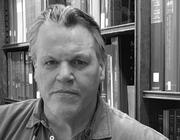Citation:

Abstract:
During the European Dark Ages there was no coherent system of scientific or philosophical thought. Throughout Western Civilization, theological doctrine and dogma replaced the rational and logical inquiry of the ancient Greek scholars. During the 13th and 14th centuries, however, the rediscovery of Aristotle's (384-322 B.C.) philosophy, as preserved by Arabic scholars, renewed interest in the development of logic and scientific inquiry. The critical writings of St. Thomas Aquinas (1227-1274), Roger Bacon (1214-1294) and William Ockham (also spelled Occham, 1285-1347/49) regarding Aristotelian ideas ultimately laid the intellectual foundations for the 17th century Scientific Revolution by de-emphasizing the primacy of understanding based upon scriptural revelation or authority.
Although the origins of astronomy and cosmology predate the human written record, by the height of ancient Greek civilization the cause of natural phenomena was attributed to the collective whim of a pantheon of Gods. Although monotheistic in the same sense as was ancient Judaism, out of this pantheism (a theology that includes multiple Gods) arose the idea that there was an infinite being, Plato's (c. 428 - c.347 B.C.), "The One," and Aristotle's (384-322 B.C.) "prime mover.' Aristotle's influence over astronomy and cosmology was to extend for nearly two millennia and, as a set of philosophical and scientific explanations of the universe, Aristotle's assertions ultimately became integral to the tightly interwoven fabric of philosophy, science, and theology that came to dominate the late Medieval intellectual landscape. more
